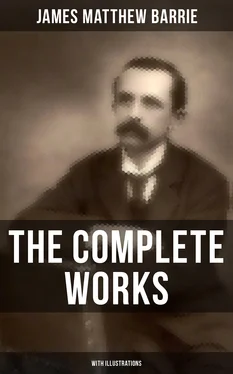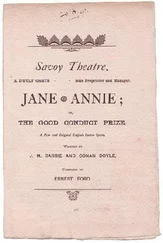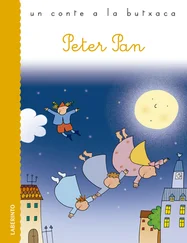Except to his landlady, who thought that he dined out, Rob had not spoken to a soul since he arrived in London. To celebrate his first proof he resolved to call on Rorrison. He had not done so earlier because he thought that Rorrison would not be glad to see him. Though he had kept his disappointments to himself, however, he felt that he must remark casually to some one that he was writing for the Minotaur .
Rorrison had chambers at the top of one of the Inns of Court, and as he had sported his oak, Rob ought not to have knocked. He knew no better, however, and Rorrison came grumbling to the door. He was a full-bodied man of middle age, with a noticeably heavy chin, and wore a long dressing-gown.
'I'm Angus from Silchester,' Rob explained.
Rorrison's countenance fell. His occupation largely consisted in avoiding literary young men, who, he knew, were thirsting to take him aside and ask him to get them sub-editorships.
'I'm glad to see you,' he said gloomily; 'come in.'
What Rob first noticed in the sitting-room was that it was all in shadow, except one corner, whose many colours dazzled the eye. Suspended over this part of the room on a gas bracket was a great Japanese umbrella without a handle. This formed an awning for a large cane chair and a tobacco-table, which also held a lamp, and Rorrison had been lolling on the chair looking at a Gladstone bag on the hearthrug until he felt that he was busy packing.
'Mind the umbrella,' he said to his visitor.
The next moment a little black hole that had been widening in the Japanese paper just above the lamp cracked and broke, and a tongue of flame swept up the umbrella. Rob sprang forward in horror, but Rorrison only sighed.
'That makes the third this week,' he said, 'but let it blaze. I used to think they would set the place on fire, but somehow they don't do it. Don't give the thing the satisfaction of seeming to notice it.'
The umbrella had been frizzled in a second, and its particles were already trembling through the room like flakes of snow.
'You have just been in time to find me,' Rorrison said; 'I start to-morrow afternoon for Egypt in the special correspondent business.'
'I envy you,' said Rob, and then told the manner of his coming to London.
'It was a mad thing to do,' said Rorrison, looking at him not without approval, 'but the best journalists frequently begin in that way. I suppose you have been besieging the newspaper offices since you arrived; any result?'
'I had a proof from the Minotaur this evening,' said Rob.
Rorrison blew some rings of smoke into the air and ran his finger through them. Then he turned proudly to Rob, and saw that Rob was looking proudly at him.
'Ah, what did you say?' asked Rorrison.
'The Minotaur has accepted one of my things,' said Rob.
Rorrison said 'Hum,' and then hesitated.
'It is best that you should know the truth,' he said at last. 'No doubt you expect to be paid by the Minotaur , but I am afraid there is little hope of that—unless you dun them. A friend of mine sent them something lately, and Roper (the editor, you know) wrote asking him for more. He sent two or three other things, and then called at the office, expecting to be paid.'
'Was he not?'
'On the contrary,' said Rorrison, 'Roper asked him for the loan of five pounds.'
Rob's face grew so long that even the hardened Rorrison tried to feel for him.
'You need not let an experience that every one has to pass through dishearten you,' he said. 'There are only about a dozen papers in London that are worth writing for, but I can give you a good account of them. Not only do they pay handsomely, but the majority are open to contributions from any one. Don't you believe what one reads about newspaper rings. Every thing sent in is looked at, and if it is suitable any editor is glad to have it. Men fail to get a footing on the Press because—well, as a rule, because they are stupid.'
'I am glad to hear you say that,' said Rob, 'and yet I had thirty articles rejected before the Minotaur accepted that one.'
'Yes, and you will have another thirty rejected if they are of the same kind. You beginners seem able to write nothing but your views on politics, and your reflections on art, and your theories of life, which you sometimes even think original. Editors won't have that because their readers don't want it. Every paper has its regular staff of leader-writers, and what is wanted from the outside is freshness. An editor tosses aside your column and a half about evolution, but is glad to have a paragraph saying that you saw Herbert Spencer the day before yesterday gazing solemnly for ten minutes in at a milliner's window. Fleet Street at this moment is simply running with men who want to air their views about things in general.'
'I suppose so,' said Rob dolefully.
'Yes, and each thinks himself as original as he is profound, though they have only to meet to discover that they repeat each other. The pity of it is, that all of them could get on to some extent if they would send in what is wanted. There is copy in every man you meet, and, as a journalist on this stair says, when you do meet him you feel inclined to tear it out of him and use it yourself.'
'What sort of copy?' asked Rob.
'They should write of the things they have seen. Newspaper readers have an insatiable appetite for knowing how that part of the world lives with which they are not familiar. They want to know how the Norwegians cook their dinners and build their houses, and ask each other in marriage.'
'But I have never been out of Britain.'
'Neither was Shakspeare. There are thousands of articles in Scotland yet. You must know a good deal about the Scottish weavers—well, there are articles in them. Describe the daily life of a gillie: "The Gillie at Home" is a promising title. Were you ever snowed up in your saw-mill? Whether you were or not, there is a seasonable subject for January. "Yule in a Scottish Village" also sounds well, and there is a safe article in a Highland gathering.'
'These must have been done before, though,' said Rob.
'Of course they have,' answered Rorrison; 'but do them in your own way: the public has no memory, and besides, new publics are always springing up.'
'I am glad I came to see you,' said Rob, brightening considerably; 'I never thought of these things.'
'Of course you need not confine yourself to them. Write on politics if you will, but don't merely say what you yourself think; rather tell, for instance, what is the political situation in the country parts known to you. That should be more interesting and valuable than your individual views. But I may tell you that, if you have the journalistic faculty, you will always be on the look-out for possible articles. The man on the stair I have mentioned to you would have had an article out of you before he had talked with you as long as I have done. You must have heard of Noble Simms?'
'Yes, I know his novel,' said Rob; 'I should like immensely to meet him.'
'I must leave you an introduction to him,' said Rorrison; 'he wakens most people up, though you would scarcely think it to look at him. You see this pipe here? Simms saw me mending it with sealing-wax one day, and two days afterwards there was an article about it in the Scalping Knife . When I went off for my holidays last summer I asked him to look in here occasionally and turn a new cheese which had been sent me from the country. Of course he forgot to do it, but I denounced him on my return for not keeping his solemn promise, so he revenged himself by publishing an article entitled "Rorrison's Oil-Painting." In this it was explained that just before Rorrison went off for a holiday he got a present of an oil-painting. Remembering when he had got to Paris that the painting, which was come to him wet from the easel, had been left lying on his table, he telegraphed to the writer to have it put away out of reach of dust and the cat. The writer promised to do so, but when Rorrison returned he found the picture lying just where he left it. He rushed off to his friend's room to upbraid him, and did it so effectually that the friend says in his article, "I will never do a good turn for Rorrison again!"'
Читать дальше












